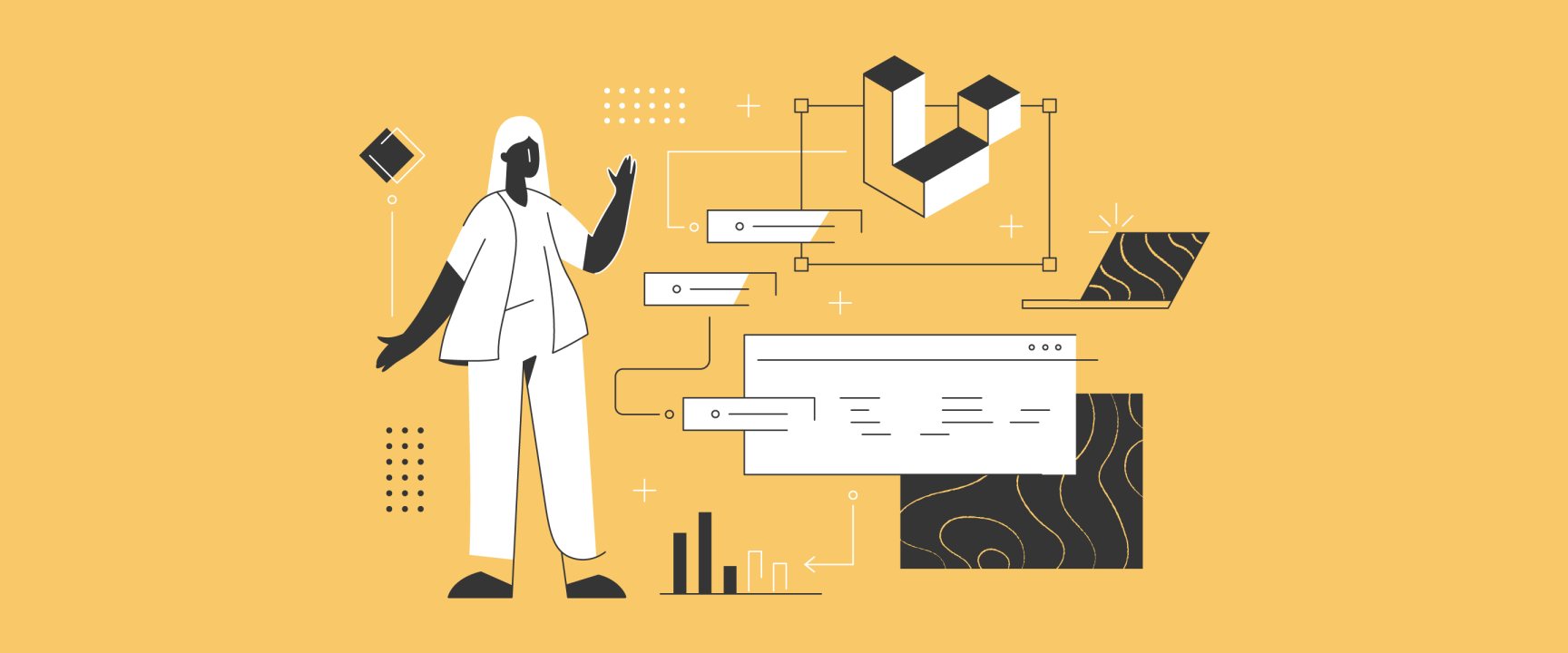Laravel is a popular PHP framework that is highly regarded for web and software development. It offers a wide range of features and benefits that make it a preferred choice for developers. Let’s explore why Laravel is considered the best for web and software development.

1. MVC Support and Object-Oriented Approach
One of the primary advantages of utilizing the Laravel framework is its adherence to the Model-View-Controller (MVC) architectural pattern. Laravel’s implementation of MVC fosters structured development by separating data models (Model), user interfaces (View), and application logic (Controller). Additionally, Laravel boasts an elegantly expressive syntax that embodies object-oriented principles, enhancing code readability and maintainability.
2. Elegant Syntax and Ease of Use
One of the key advantages of Laravel is its elegant syntax, which makes code easy to read and write. It follows the Model-View-Controller (MVC) architectural pattern, providing a structured and organized approach to development. This makes it easier for developers to build and maintain complex web applications.
3. Robust Routing System
Laravel has a powerful routing system that simplifies the process of defining routes for your application. It allows you to easily handle HTTP requests and map them to corresponding controller actions. With Laravel’s routing system, you can create clean and SEO-friendly URLs for your web application.
4. Packaging System
The packaging system in Laravel streamlines the integration of various supporting software and libraries crucial for web applications. Leveraging Composer as its dependency manager, Laravel efficiently organizes and maintains package-related information. These packages serve as potent accelerators for development, offering pre-built functionalities that expedite project progression. Noteworthy Laravel packages such as Image, Laravel Debug Bar, and Laravel IDE Helper exemplify this by delivering essential functionalities and augmenting development processes, enabling developers to swiftly access needed features without starting from scratch.
5.Multiple File System
Laravel offers robust built-in support for various cloud storage systems, including Amazon S3, Rack space Cloud Storage, and local storage. What sets Laravel apart is its seamless adaptability between these storage options, maintaining a consistent API across each system. This flexibility enables effortless transitions between storage providers within the application. Leveraging this capability, developers can integrate and utilize multiple storage systems simultaneously. This versatility proves invaluable, especially in distributed environments, allowing files to be served from diverse locations while maintaining a unified application experience.
6. Artisan Console
Within Laravel, the Artisan console stands as a powerful command-line interface. This tool simplifies various development tasks, offering functionalities such as publishing package assets, database migration management, seeding, and the generation of boilerplate code for controllers, models, and migrations. Artisan significantly expedites the development process by providing ready-made code skeletons, freeing developers from repetitive setup tasks. Moreover, its extensibility allows developers to enhance Artisan’s capabilities by creating and implementing custom commands, thereby tailoring it to suit specific project needs and further streamlining the development workflow.
7. Database Migration and ORM Support
Laravel provides a built-in database migration system that allows you to version control your database schema. It simplifies the process of creating and modifying database tables, making it easy to collaborate with other developers. Additionally, Laravel’s Object-Relational Mapping (ORM) called Eloquent provides an intuitive and expressive way to interact with the database, reducing the amount of SQL code you need to write.
8. Comprehensive Authentication and Authorization
Security is a crucial aspect of web and software development. Laravel makes it easy to implement authentication and authorization features in your applications. It provides a robust authentication system out of the box, allowing you to easily manage user registration, login, and password reset functionality. Laravel also offers a flexible and easy-to-use authorization system, allowing you to define fine-grained access control rules.
9. Rich Ecosystem and Community Support
Laravel has a vibrant and active community of developers, which means you can find plenty of resources, tutorials, and packages to enhance your development experience. The Laravel ecosystem offers a wide range of pre-built packages, known as Laravel Packages or “Laravel Packages”, that can be easily integrated into your application. This saves development time and effort, allowing you to focus on building the core features of your application.
10.Task Scheduling
Introduced in Laravel 5.0, the Scheduler serves as a valuable addition to the Artisan command-line utility, facilitating the automated scheduling of recurring tasks. This feature empowers developers to programmatically schedule routine tasks within their applications. Leveraging the scheduler involves defining tasks to be executed periodically through a fluent, expressive syntax provided by Laravel. Behind the scenes, the scheduler relies on the cron daemon to execute a single Artisan job, which in turn triggers the configured tasks as per their schedules. This seamless integration with the cron daemon simplifies the process of managing and automating routine operations within Laravel applications.
11.Events and Broadcasting
In Laravel, the concept of broadcasting proves instrumental in modern web applications, especially in implementing real-time features like live feeds and dynamic updates. Broadcasting enables synchronization between server-side events and client-side actions by allowing the sharing of event names between both ends. This synchronization facilitates the seamless transmission of real-time data within the application. Leveraging broadcasting capabilities, developers can establish a connection that enables clients to receive live updates or data in real-time, creating engaging and interactive user experiences.
12. Testing and Debugging
Laravel is designed to be scalable and performant. It offers features like caching, queueing, and database optimization to improve the performance of your application. Laravel’s modular structure allows you to divide your application into smaller, reusable components, making it easier to scale and maintain.
In conclusion, Laravel is considered the best framework for web and software development due to its elegant syntax, robust routing system, database migration support, comprehensive authentication and authorization features, rich ecosystem, testing and debugging tools, and scalability and performance. Whether you’re building a small web application or a large-scale software solution, Laravel provides the tools and features necessary to streamline your development process and deliver high-quality applications.
We have a team of experts who can help you in app web & software development
Let’s Talk Us
